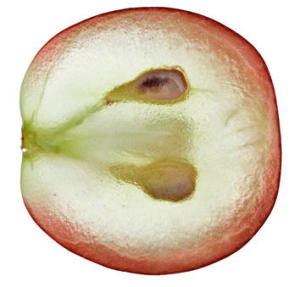According to Science Daily, norovirus causes more than half of all food-born illnesses in the U.S., and is the second greatest source of reported foodborne illness outbreaks in the European Union. A recent study found that grape seed extract could reduce the infectivity of Norovirus surrogates (Norovirus surrogates are viruses that share pathological and/or biological features with human norovirus).
Now, Dan Li of Ghent University, Ghent, Belgium and collaborators have shown that grape seed extract does so by denaturing the capsid protein, which is the coat of the  virus, thereby disabling the virus.
virus, thereby disabling the virus.
The research is published in the November 2012 issue of Applied and Environmental Microbiology.
In the study, the researchers observed that under treatment with grape seed extract, at low doses, the spherically-shaped murine (mouse) norovirus-1 coat proteins clumped, and showed “obvious deformation and inflation,” according to the report. At higher doses, the researchers saw no coat proteins, only protein debris. “This provides evidence that [grape seed extract] could effectively damage the [norovirus] capsid protein, which could reduce viral binding ability and infectivity accordingly,” according to the report.
The researchers used surrogate viruses because there are no suitable animal models of norovirus, and human norovirus has been impossible to propagate in cell cultures. The surrogate virus, murine norovirus-1, can be grown in cell culture, and belongs to the same genus as human norovirus, and has a very similar genome structure, and morphology. Nonetheless, the researchers were able to measure the specific binding strength of human norovirus by two different methods, finding that it declined precipitously under the influence of grape seed extract, providing further support to their results.
